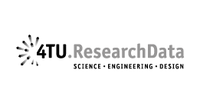There is now a broad consensus that sharing and preserving data makes research more efficient, reproducible and potentially innovative. As such, most funding bodies now require research data to be stored, preserved, and made available long-term. But who is going to pay for this to happen? | Dunning & Teperek, 2018
Data management isn't free. In this section, you will find tips and tools to support researchers in estimating the costs or data management, one of the components of a data management plan.
Short and long term financing of data management
The need for reliable data archives is increasing as research funders increasingly demand that research data be made available in open access. At the same time, the funding model for data archives is still far from clear. There is a tension between the short-term funding which is inherent to research projects and the long-term effort involved in continuing to make the research data generated by such projects available. For example, the financial rules of the Europese Commission (n.d.) that grant money can only be spent during the project and not afterwards. This means that grant money can be requested for data management during the project, but not for the costs of long-term archiving.

Project-based funding for data infrastructures is not sustainable in the long term. Already in 2013, the authors of the white paper 'Sustaining Domain Repositories for Digital Data' (Ember, 2013) argued that the costs of long-term preservation should be taken into account by research funders (by allocating a percentage of the total budget for this purpose). This model would mean that all data would have an equal chance of being archived. Discussions between individual research funders and individual institutions have not yet yielded any results that support this model. Therefore, Dunning and Teperek (2018) state that coordinated action is needed to put the issue of funding for long-term archiving on the agenda of research funders.
An important point that could and should be taken up by data supporters.

In the spotlight
Quite a few projects have focused on estimating the costs of data management and long-term preservation (Jackson & Wheatly, 2016). A number of concrete tools that emerged from these projects are listed below.
Guide to estimating the costs of data management (Utrecht University)
RDM Support at Utrecht University developed a guide to estimate the costs of data management for each research phase and research activity (Utrecht University, n.d.).
Data Management Costing Tool (UK Data Service)
UK Data Service (2015) developed a costing tool.The tool gives an overview of possible cost items to be taken into account during the entire life cycle of research data. The person filling in the form should still estimate the total cost.
Curation Costs Exchange
Curation Costs Exchange (CCEx, n.d.) is a platform built to help organizations assess the costs of long-term preservation through comparison and analysis. CCEx is designed to provide real cost information in order to make an informed choice for an investment
Historically funders have encouraged, and still encourage, the use of domain specific resources, which have been born from project-based funding because of a lack of provision elsewhere. This has created a complex situation – researchers created domain specific data infrastructures using their project funding; these have become the subject norm; funder’s encourage their use, but now don’t have the mechanisms to be able to pledge sustained long-term funding | University of Cambridge, 2017

Sources
Click to open/close
4TU.Centre for Research Data. Data Management Costing Tool. https://zingtree.com/host.php?style=buttons&tree_id=511095771&persist_names=Restart&persist_node_ids=1&start_node=1&start_tree=511095771
CCEX (n.d.) Curation Costs Exchange. Understanding and comparing digital curation costs to support smarter investments. http://www.curationexchange.org/compare-costs
Dunning, A., Teperek, M. (2018, September 7th). Research data should be available long-term…but who is going to pay? Impact of Social Sciences blog. [Blogpost] https://blogs.lse.ac.uk/impactofsocialsciences/2018/09/07/research-data-should-be-available-long-termbut-who-is-going-to-pay/
Ember, C. (2013). Sustaining Domain Repositories for Digital Data: A white paper. https://deepblue.lib.umich.edu/bitstream/handle/2027.42/136145/WhitePaper_ICPSR_SDRDD_121113.pdf?sequence=1&isAllowed=y
European Commission (n.d.). Horizon 2020 online manual.Open access & data management. https://ec.europa.eu/research/participants/docs/h2020-funding-guide/cross-cutting-issues/open-access-dissemination_en.htm
Jackson. A.; Wheatley, P. (2016). Digital preservation and data curation costing and cost modelling. [wiki]. wiki.opf-labs.org/display/CDP/Home
UK Data Service (2015). Data management costing tool and checklist.https://ukdataservice.ac.uk/media/622368/costingtool.pdf
University of Cambridge (2017, June 26). Office of Scholarly Communication. Open Resources: Who Should Pay? [Blogpost]. https://unlockingresearch-blog.lib.cam.ac.uk/?p=1483
Utrecht University (n.d.). RDM Support. Costs of data management. [Guide] https://www.uu.nl/en/research/research-data-management/guides/costs-of-data-management





